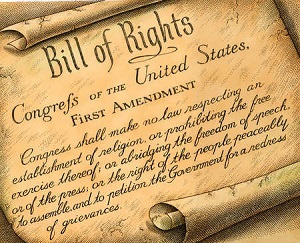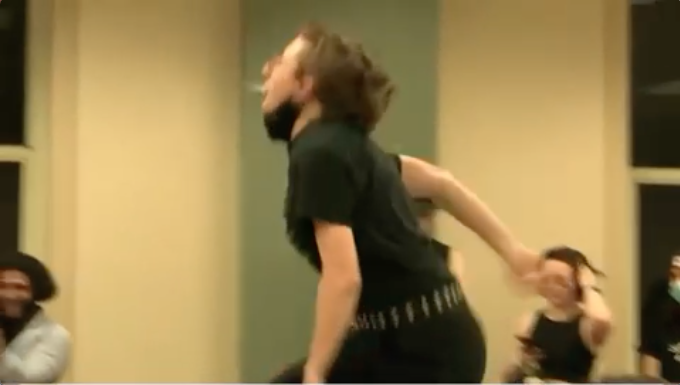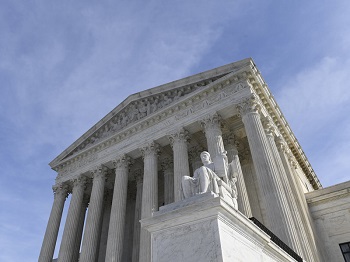Free Speech for Me but not for Thee?
 Alexander Hamilton was 21 years of age; Aaron Burr, 20 years of age; James Monroe, 18; James Madison, 25 years old. These young Founding Fathers, some of America’s most notable names, were college age when they stood against an opposing British monarch and demanded life, liberty, and the pursuit of happiness.
Alexander Hamilton was 21 years of age; Aaron Burr, 20 years of age; James Monroe, 18; James Madison, 25 years old. These young Founding Fathers, some of America’s most notable names, were college age when they stood against an opposing British monarch and demanded life, liberty, and the pursuit of happiness.
In fact, the right to freedom of speech was considered so important that James Madison, the author of the Constitution, made it the First Amendment in the Bill of Rights. However, it seems today that some of America’s youngest minds of this generation have forgotten just what it is this great Nation stands for and what ideals it was built on.
A disturbing trend has begun cropping up on some college campuses around the country. The ideals that our Founding Fathers so painstakingly penned into life are at risk of disappearing from the sacred parchment of liberty.
Freedom of speech is under attack. The left has perpetrated the idea that freedom of speech only applies to them but not to opposing views: free speech for me but not for thee.
Conservative thinkers are often banned from some universities. If they are invited, students are allowed the disrupt the events.
Since when does a war of words include physical violence against anyone who disagrees? Some universities and students claim that if speech is offensive, it must be banned; and who are we going to let decide what is offensive or hurtful? The listener? The elite academia? The government?
This is a very dangerous philosophy that some of our universities are promoting and students are accepting. The British censored speech critical of the King. That is one reason the free flow of diverse ideas is protected in our country.
The Bolsheviks and Lenin enforced censorship of ideas they opposed. Lenin said, to paraphrase: We don’t let our enemies have guns.
Why should we let them have ideas that are calculated to criticize the government? Speech control by universities, professors, students, or government is a violation of the 1776 movement.
It seems as if our very founding document is at risk of fading into the abyss of history. Have we forgotten the meaning of the First Amendment?
The First Amendment protects all forms of speech, even those we don’t personally agree with. Even those words that offend us personally are protected.
If our American public square or university becomes a place where only ideas that the speech police allow, then we have lost our way and have become nothing more than an echo chamber.
How can political ideas be challenged if people cannot be allowed the freedom to speak different opinions? In Terminiello v. Chicago, Supreme Court Justice Douglas stated: ‘‘A function of free speech under our system of government is to invite dispute. It may indeed best serve its high purpose when it induces a condition of unrest, creates dissatisfaction with conditions as they are, or even stirs people to anger.’’
I guess Justice Douglas would not be allowed on some of our university campuses today to have dialogue with students because he ruled controversial views are constitutionally protected. Freedom of speech is one of the things that made this country different from the rest of the world.
We must remember that fact and reject the tendency to bruise the First Amendment by stamping out speech that is controversial. In the famous words of Evelyn Beatrice Hall, who wrote under a pseudonym in the 1900s: ‘‘I disapprove of what you say, but I will defend to the death your right to say it.’’
I don’t see any university professors teaching this dedication to free speech. What is most disturbing is that often it is the public universities that are responsible for silencing speech that they don’t agree with.
This is clearly a violation of the philosophy of the First Amendment. George Washington said it best: ‘‘If the freedom of speech is taken away, then dumb and silent we may be led like sheep to the slaughter.’’
America must always remain a free and open public space where the marketplace of ideas, even those we may detest or disagree with, are always freely expressed.
I leave you with the words of James Madison: ‘‘The advancement and diffusion of knowledge is the only guardian of true liberty.’’ Our college youth of today should heed the words of American youth of 1776. But the elite academia of our university speech police may not allow controversial words—those words of Madison and Jefferson—to be taught on campus because it just might offend them.
And that is just the way it is.







